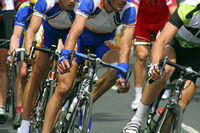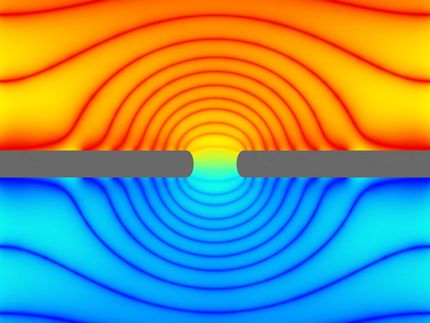People consuming high amounts of energy drinks ignore the pick-me-up risk
BfR study examines the drinking habits at festivals, sports events, LAN parties and in discos
Advertisement
Some visitors to discotheques, music and sports events and LAN parties drink considerable amounts of so-called energy drinks used for pick-me-up. On average, the persons questioned consumed approx. 1 litre of energy drink mixed with alcoholic beverages while dancing in clubs. "Up to 5 litres were drunk within 24 hours in some cases," says BfR President Professor Dr. Dr. Andreas Hensel. "Undesired health effects of energy drinks are possible, especially if people consume very large quantities, mix them with alcohol, only get a little sleep or exert themselves physically". These risks are particularly considerable for individuals who are sensitive to caffeine, such as persons with certain cardiovascular disorders. The manufacturers’ notes on the packaging are often not heeded. This was the result of the study "Event-Related Survey of High Consumers of Energy Drin ks" conducted by the Federal Institute for Risk Assessment (BfR). The latest data on the consumption behaviour of high consumers deliver important additional information for the risk assessment of energy drinks.
Energy drinks are beverages which contain caffeine, usually mixed with the substances taurine, inositol and glucuronolactone, often in high concentrations. As a basic rule, people with cardiovascular disorders, children and pregnant women should avoid energy drinks. In addition to this, undesired health effects may occur if energy drinks are consumed while involved in strenuous physical activities or when taken together with alcoholic beverages.
The BfR already assessed the possible health risks of energy drinks in 2008. They can result from high consumption, especially if the products are consumed in conjunction with strenuous physical activity, such as sports or all-night dancing, or together with alcoholic drinks.
This new BfR study on persons consuming high amounts of energy drinks delivers, for the first time, reliable consumption data and, in addition information about risk-enhancing factors, such as lack of sleep, physical exertion and alcohol. These data are important for making more reliable statements in the risk assessment of drinking behaviour, and thereby on caffeine intake, thus enabling a more realistic exposure estimation. High consumption of energy drinks was a primary focus in the study “Event-Related Survey of High Consumers of Energy Drinks”. This means persons who had ingested more than half a litre of energy drink within a 24-hour period. A total of 508 visitors to discotheques, clubs, music festivals, sports events and LAN/gaming parties who had already drunk at least half a litre of energy drink within this timeframe were interviewed in the period September/October 2012.
According to the study results in relation to the observed events, mainly men aged between 20 and 25 years consume high amounts of energy drinks. On average, all respondents consumed approximately 1 litre of energy drink mixed with alcohol while dancing in clubs. At LAN parties, considerable consumption of energy drinks can be observed, where participants have to stay awake for long periods of up to two days and nights. In several cases, up to 5 litres of energy drink were consumed together with alcohol within 24 hours. Despite the possible health risks, the consumption of energy drinks in combination with alcohol - especially vodka - is widespread. In discotheques and at music festivals, up to 4 litres of energy drink were also consumed in combination with alcohol within a 24-hour period in extreme cases.
The survey also showed that high amounts of energy drinks may be consumed at sports events by an average of more than 1 litre within a 24-hour period. In some cases more than 3 litres were drunk, but not mixed with alcohol. In combination with strenuous physical activity, however, this consumption behaviour can also involve health risks. In particular, undesired effects on the cardiovascular system, partly due to dehydration are possible with a high caffeine intake through energy drinks.
It became clear in the course of the interviews that apart from the taste, the main reasons for consuming energy drinks are often the promised effects with regard to performance and staying awake. Awareness of the problem of the possible health risks posed by the excessive consumption of energy drinks, especially in connection with intensive sport and also with alcohol abuse, is not appropriately developed among high consumers.
Several years ago, the BfR already proposed that a warning remark should be applied to the labels of energy drinks to achieve that certain consumer groups (children, expectant and nursing mothers, persons sensitive to caffeine) should avoid energy drinks. In the meantime, a corresponding warning has been made mandatory on EU level. In addition, the BfR recommends labelling on bottles to inform the consumers about the possible undesired effects that can occur in combination with excessive physical exertion or alcohol consumption.






























































